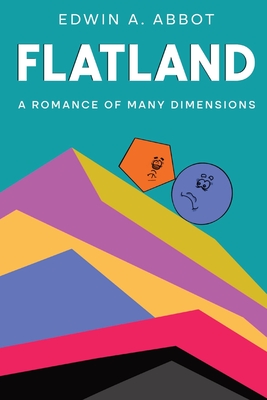Section 18: How I Came to Spaceland, and what I Saw There
bySection 18 begins with the narrator’s unexpected departure from Flatland, guided by a mysterious being called the Sphere. This moment marks his initiation into a realm that his mind cannot immediately comprehend. The experience of being lifted from his world and into Spaceland defies logic and perception, causing fear and disorientation. Yet, as he acclimates, his fear gives way to fascination. The new dimension isn’t just a visual revelation—it redefines what the narrator thought was possible. The Sphere, with patience and authority, explains the third dimension, challenging the Square to expand his thinking. Through subtle illustrations, the Sphere unveils the nature of height—an alien concept to a Flatlander. The journey becomes both literal and philosophical, moving the Square beyond mere lines and angles toward something far grander. The narrator begins to grasp that his former understanding was a fraction of a larger truth, one hidden by the limits of his perception.
As the Sphere explains Spaceland’s properties, the narrator struggles to reconcile these new ideas with his Flatland reasoning. He tries to understand solids as collections of planes, but even this approach proves inadequate. The Sphere offers an alternative—experience over explanation. By allowing the Square to observe Flatland from above, the Sphere reveals the simplicity of the third dimension’s superiority. The Square can now see inside houses and view individuals simultaneously—a power impossible in his old world. This glimpse into omniscience shifts the conversation toward divine perception. The Sphere warns that true knowledge requires moral depth, not just observational dominance. The Square, newly humbled, begins to question everything he believed. What if all of Flatland’s reality had been an illusion shaped by limitation? The revelations unsettle yet invigorate him, sparking a desire to share this truth with his fellow citizens.
Upon returning to Flatland, the Square sees his home in a new light, literally and metaphorically. Familiar surroundings seem absurdly simple. His wife, once only visible edge-on, now appears transparent and limited. The Square is overwhelmed with a mixture of pity and urgency—he wants others to experience what he has learned. But the Sphere cautions against direct confrontation with the rigid doctrines of Flatland’s society. Enlightenment, he explains, often meets resistance. The Square, however, is eager to reveal the truth and believes reason will be enough to change minds. The Sphere reluctantly agrees to visit the Council with him, although skepticism hangs in the air. This moment reflects the real-world challenge faced by innovators—ideas ahead of their time are not easily accepted.
The Council’s reaction is predictably hostile. Faced with a being that defies their understanding, they resort to denial and condemnation. The Sphere’s demonstration, intended to enlighten, is viewed as heresy. Despite clear evidence, the Council clings to tradition and power. The narrator is stunned. He thought knowledge would set minds free, but instead, it threatens the societal structure. The Council, fearing disruption, labels the revelations dangerous and begins preparations to silence them. The Sphere, disappointed but unsurprised, withdraws. The Square is left to wrestle with the harsh truth: enlightenment carries a cost. The chapter closes not in triumph, but in caution.
This narrative mirrors many real-world moments when radical discoveries clash with established norms. Whether in science, art, or philosophy, transformative ideas often encounter fierce resistance. Section 18 of Flatland serves as a powerful allegory for these struggles. The narrator’s journey is not just spatial—it is deeply intellectual and emotional. He moves from ignorance to understanding, only to find that truth alone cannot dismantle systems built on fear and control. Readers are encouraged to reflect on their own perceptions and the structures they accept without question. The story suggests that real vision requires not only new perspectives but the courage to endure isolation and rejection.


